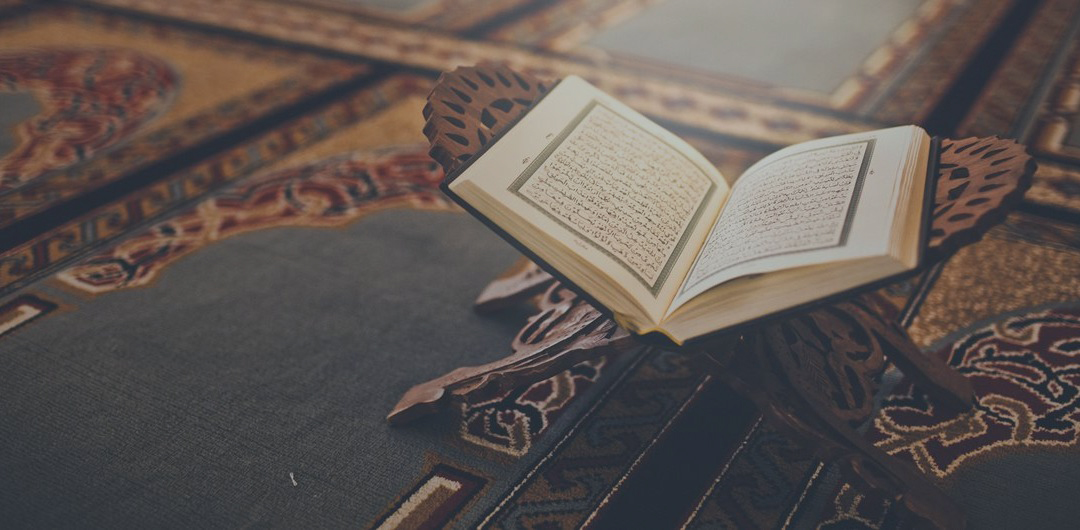A Brief Biographical Sketch of Umm Sulaym

By Bint Umar (4th Year Alimah Student, DarusSalam Seminary)
There is a difference of opinion regarding what Umm Sulaym’s real name was. Rumaysah, Sahlah, Unayfah, and Rumaythah are some names that have been related for her. She is famously known as Umm Sulaym (May Allāh be pleased with her). She hailed from the Anṣār and belonged to the Tribe of Khazraj.[1] She married Mālik b. Naḍr during the Jāhilīyah and is one of the early believers. She had a son, Anas b. Mālik (May Allāh be pleased with him), who became a well-known companion.[2]
Once she was teaching Anas to say the kalimah. Anas did as he was told, and his father said to her: “Do not spoil my son!” To which she replied: “I am not spoiling him!”[3] Later on, Mālik b. Naḍr traveled to the Levant where he encountered one of his enemies who killed him.[4] Now a widow, Umm Sulaym said she would only remarry with Anas’s consent.
Abū Ṭalḥah, who had not yet accepted Islām, proposed to her. She said: “O Abū Ṭalḥah! Do you not know that the god you worship is grown from the ground?” He said: “Of course!” She then asked: “Don’t you feel ashamed that you worship a tree? If you accept Islām, then I do not want any dowry from you except that of your faith.” He said he would consider the matter and left. Thereafter, he came and accepted Islām. She requested Anas to consent to her marrying him.[5]
Umm Sulaym is regarded as one of the most virtuous women in Islām. She participated at the Battle of Uḥud by providing water to the thirsty and attending to the injured. At Ḥunayn, she was pregnant with ʿAbd Allāh b. Abī Ṭalḥah.[6] Anas (May Allāh be pleased with him) narrated that his mother carried a dagger with her during the battle. Abū Ṭalḥah said: “O Allāh’s Messenger! This is Umm Sulaym, and she has a dagger.” She said: “O Allāh’s Messenger! If a polytheist comes near, I will stab him in his stomach.”[7] In another narration, she said this to Abū Ṭalḥah, and he narrated it to the Prophet (upon him be peace). To which the Prophet (upon him be peace) said: “O Umm Sulaym! Indeed, Allāh is sufficient.”[8]
The Prophet (upon him be peace) had a special relationship with Umm Sulaym. Besides for his wives’ homes, the Prophet (upon him be peace) would only visit her house. When he was asked regarding why, he said: “I have mercy on her. Her brother and father were killed supporting me.”[9] Jābir (Allāh be pleased with him) narrated that the Prophet (upon him be peace) said: “I saw myself entering into paradise and Abū Ṭalḥah’s wife, Rumaysah, was there.”[10]
Anas (Allāh be pleased with him) narrated that once the Prophet (upon him be peace) was taking an afternoon nap and we approached him. He (upon him be peace) was sweating and Umm Sulaym (Allāh be pleased with her) came with a flask and collected his perspiration. Then the Prophet awoke and asked her: “O Umm Sulaym! What are you doing?” She said: “This is your sweat, which we mix in our perfume so that our perfume becomes fragrant.”[11]
One famous incident of Umm Sulaym happened when her son passed away. Anas narrated that: “One of Abū Ṭalḥah’s sons became sick and died. Abū Ṭalḥah, at the time, was not home. When his wife saw that he was dead, she prepared him and placed him somewhere in the house. When Abū Ṭalḥah came, he asked: “How is the boy?” She said: “The child is quiet, and I hope he is in peace.” Abū Ṭalḥah understood the apparent meaning of her statement. He then slept. In the morning he took a bath. When he intended to go out, she told him that his son had died. Abū Ṭalḥah prayed with the Prophet (upon him be peace) and informed him of what happened. Allāh’s Messenger (upon him be peace) said: “May Allāh bless you concerning your night.” Sufyān said: “One of the Anṣār said: ‘They had nine sons and all of them became reciters of the Qurʾān.’”[12]
[1] Siyar Aʿlām al-Nubalāʾ, 2:304.
[2] al-Iṣābah fī Tamyīz al-Ṣaḥābah, 8:409.
[3] Siyar Aʿlām al-Nubalāʾ, 2:305.
[4] al-Iṣābah fī Tamyīz al-Ṣaḥābah, 8:409.
[5] Ḥayāt al-Ṣaḥābah, 1:230.
[6] al-Ṭabaqāt al-Kabīr, 8:312.
[7] Siyar Aʿlām al-Nubalāʾ, 2:304.
[8] Ḥilyat al-Awliyāʾ, 2:58.
[9] al-Iṣābah fī Tamyīz al-Ṣaḥābah, 8:409.
[10] Ḥilyat al-Awliyāʾ, 2:58.
[11] Ibid., 61.
[12] Ṣaḥīḥ al-Bukhārī, #1301.


